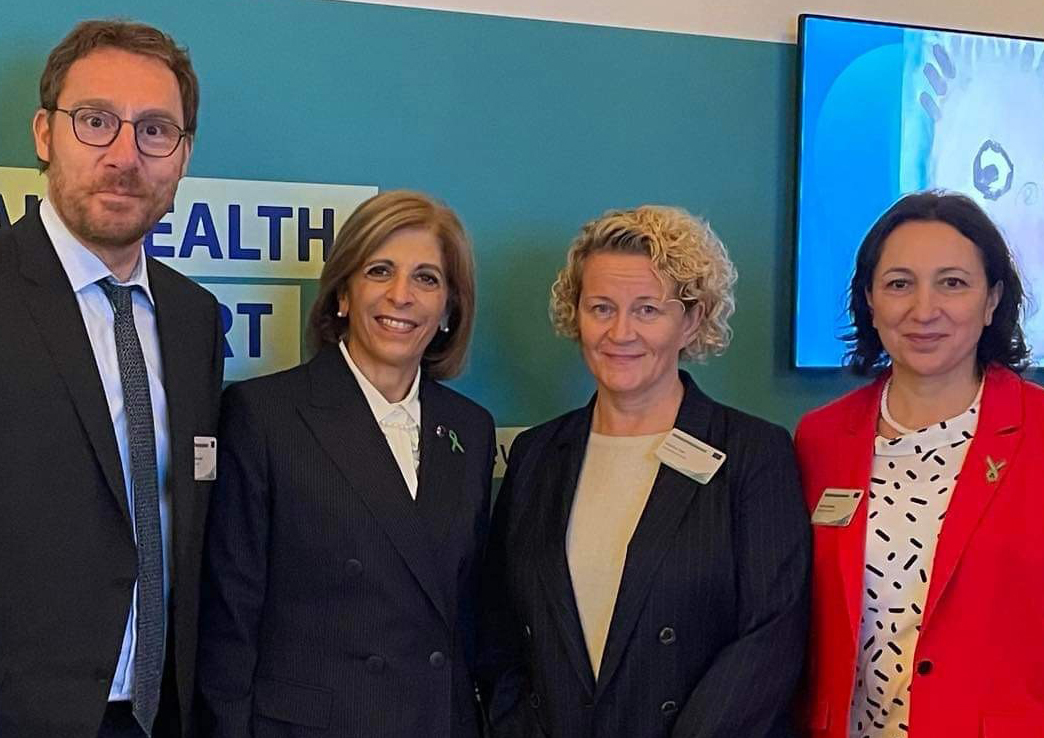EU promotes new comprehensive approach to mental health

date: 16/10/2023
Marianne: You have just come from the mental health conference in Brussels, what did you take away from this event?
The conference put mental health in the spotlight, which is what we are all striving to do. Indeed, destigmatising mental health issues and encouraging open discussion are key to our approach.
I was impressed by the profound commitment shown by all the speakers, the people who gave testimonials and the participants – online and in person – on how we can improve mental health in the EU. The EU and Member States alone cannot effectively address mental health issues and bring down the burden on our society. We need everybody on board to help us to implement the Communication and its flagships.
The will is there, the solidarity is there, but so is the urgent need. One in six EU citizens is reportedly experiencing mental health problems. That translates to approximately 84 million people. These problems not only impact individuals, families, and communities, but also place a sizeable burden on our economies, costing EUR 600 billion or 4% of GDP annually, mainly through lost employment.
And these are numbers from before the pandemic hit us. COVID-19, the Russian war of aggression in Ukraine, the climate crisis, rising living costs, unemployment and increasing digitalisation further worsened existing challenges. This was especially true among young people and people with pre-existing mental health problems. The conference served as a sort of departure line, where we are all setting off down a path toward better mental health together. Member States are now well placed to use all the opportunities for implementation.
Marianne: This year saw the publication of the new comprehensive approach to mental health. How does this approach address the challenges you mentioned?
This summer we launched Europe’s first comprehensive approach to mental health, which is a priority for President von der Leyen. Only nine months after she announced “a new initiative on mental health” in her 2022 State of the Union speech, the new Communication was adopted. This was done after extensive consultation with Member States, stakeholders and citizens and in remarkable cooperation between the relevant Commission services.
It is the beginning of a new way of working on mental health that goes beyond public health policy and strongly includes other key areas such as education, employment, digitalisation, research, culture, urban planning, environment and climate. And it will help to make mental health a priority equal to physical health.
Three main principles guide us: adequate and effective prevention, access to mental healthcare and treatment, and reintegration into society after recovery. They are the basis for achieving the objective of this new ambitious approach.
The Communication has 20 flagship initiatives and identifies EUR 1.23 billion in funding opportunities, which will allow us to put our promises will be put into action.
Stefan: One takeaway from this week’s Conference was the challenges faced by children and young people; how is the Commission’s approach addressing this?
One focus of the Communication on mental health is on supporting children and young people. During the consultation phase, Commissioner Kyriakides met with 15 young people for a youth policy dialogue on mental health, as part of the European Year of Youth, to hear their particular concerns. The 2022 Health at a Glance report reported that 1 in 2 young Europeans reported unmet needs, and that depression among young people more than doubled.
We particularly need to protect young people during their most vulnerable and formative years. Digitalisation – including use of social media – puts increasing pressure on their mental health. We need to protect them from inappropriate content, cyberbullying, hate speech, excessive screentime aggressive (online) marketing of unhealthy foods and beverages, beauty standards, and alcohol and tobacco.
To address this, an entire chapter in the Communication is dedicated to boosting their mental health and four flagships have been developed in cooperation between Commission services. Among others, they aim at listening better to children and youth on mental health issues, at developing a prevention toolkit that addresses key health determinants, and at better protecting children in the digital sphere, online and on social media.
Yvette: What can we expect in the coming months and years on mental health action?
We are focusing our efforts on the implementation of the flagship initiatives of the Communication on mental health. We do this together with Member States through the sub-group on mental health of the Public Health Expert Group, and with stakeholders through the new network on the EU Health Policy Platform. For example, we will support EU Member States to develop EU guidance on breaking through stigma and tackling discrimination on mental health.
The EU4Health programme is available to support Member States in achieving a mental health across policies approach. We are investing EUR 9 million on capacity-building on mental health. This project, which is expected to kick-off in 2024, will include a multi-disciplinary training programme and a cross-border exchange programme for health professionals and other professionals. Last week we closed a call for best and promising practices on mental health. We have received around 50 proposals that will be evaluated. We will then support Member States that wish to transfer a best or promising practice into their country.
An example where stakeholders can help us is in the development of a European Code for Mental Health. The idea is that we will have evidence-based, easy-to-understand messages that will empower citizens, help raise awareness around mental health, and improve health literacy to promote mental health. The call for proposals is still open till 17 October.
For more information, please visit: https://health.ec.europa.eu/non-communicable-diseases/mental-health_en
